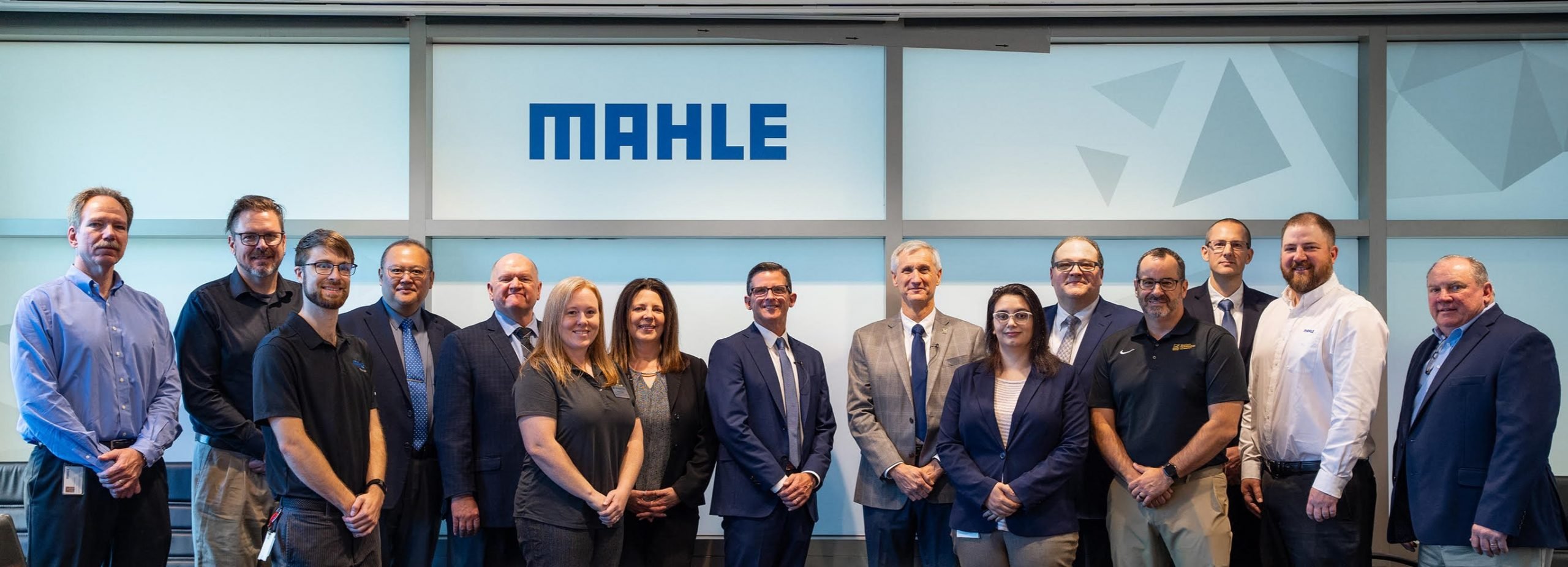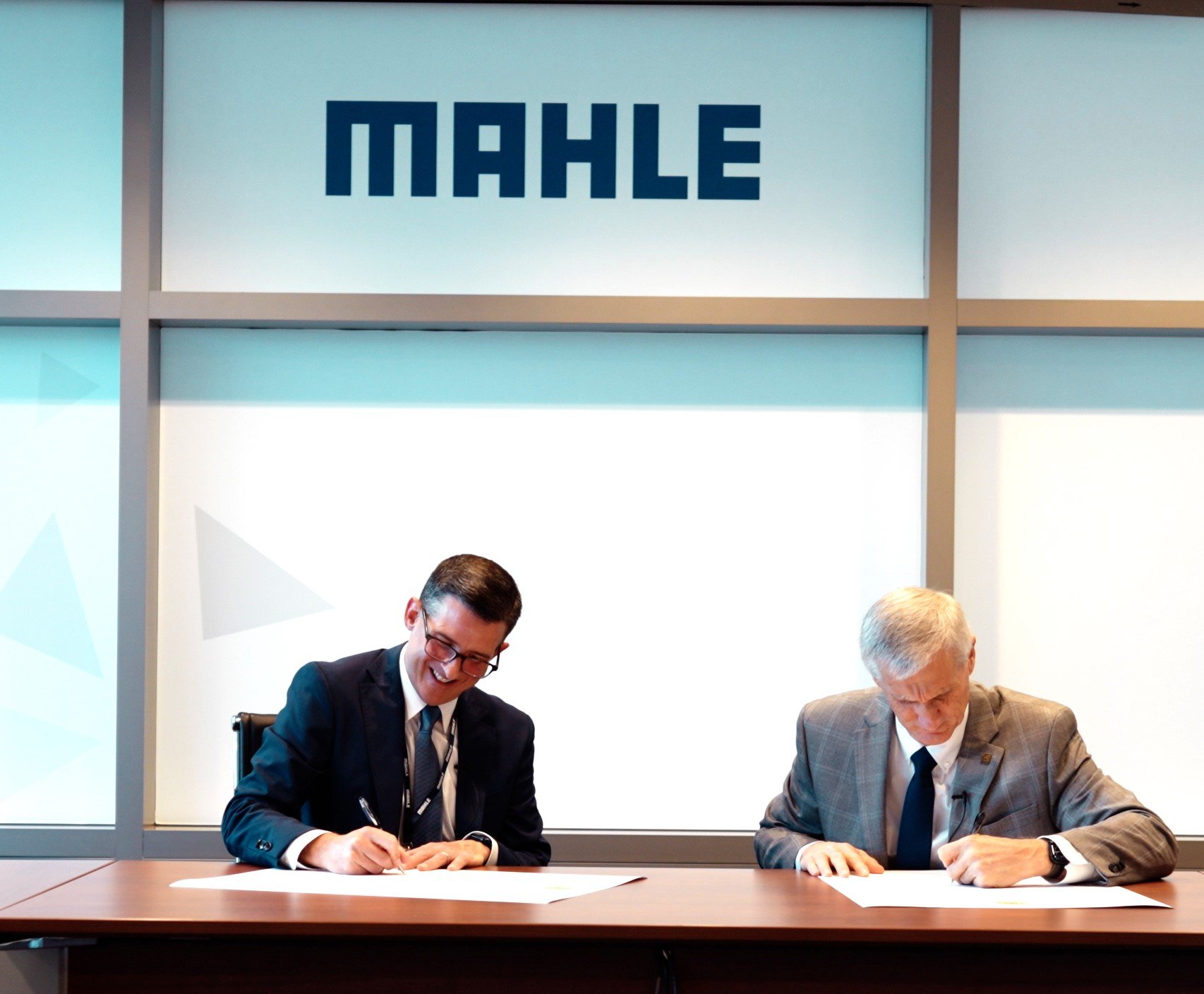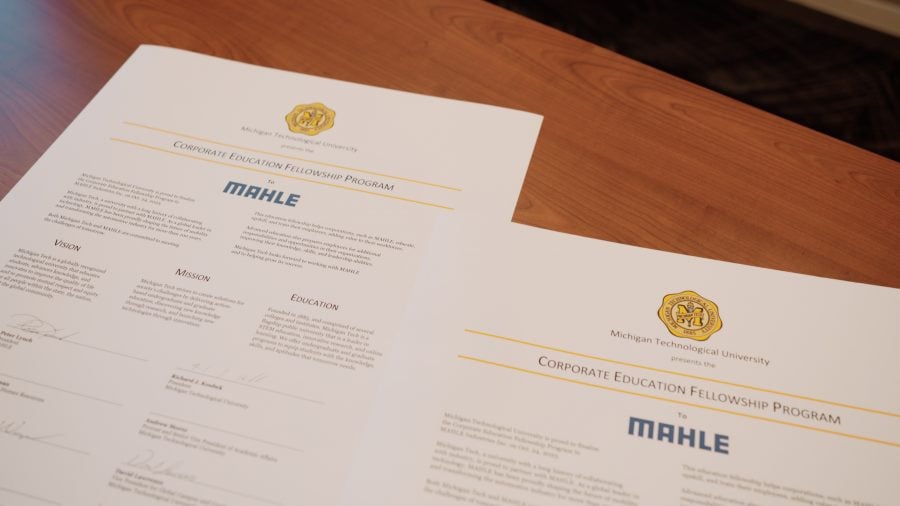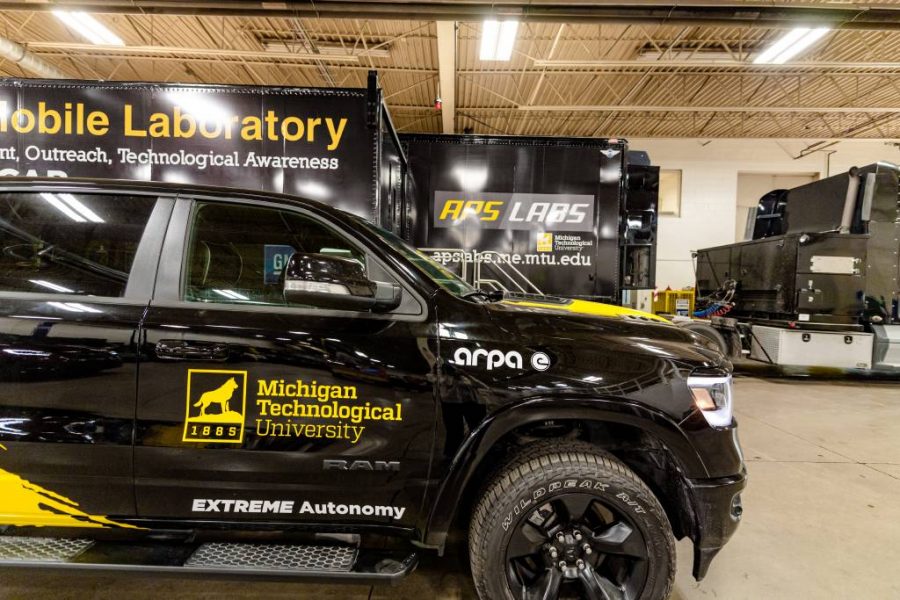
MAHLE is excited to partner with Michigan Tech on the Corporate Education Fellowship. This partnership not only allows employees to steer their professional development and open new pathways for internal career mobility, but also allows MAHLE to proactively support the development of our employees to meet the evolving demand for new skills and competencies.
This fellowship, when coupled with MAHLE’s Educational Reimbursement, provides employees with the ability to access affordable education through Michigan Tech’s online programs, offering flexibility to learn at their own pace, while balancing their personal life and work. We look forward to a successful partnership that will help to further prepare MAHLE and our employees as our industry transforms toward a decarbonized future.
On Tuesday, Oct. 24, 2023, Michigan Technological University signed a Corporate Education Partnership Agreement with MAHLE Industries Inc. MAHLE is a leading international development partner and supplier to the automotive industry.
The partnership agreement was signed at MAHLE’s North American headquarters in Farmington Hills, Michigan. President Richard Koubek and David Lawrence (vice president for Global Campus and continuing education) were present for Michigan Tech. Peter Lynch (president of MAHLE) and Tiffiney Woznak, (director of Talent Management, MAHLE North America) represented MAHLE. Other leaders from both organizations also attended.


Growing With Their Organizations
The Corporate Education Fellowship supports MAHLE employees in their pursuit of graduate education through Michigan Tech’s Global Campus. Eligible employees will receive fellowships to enroll in one of Michigan Tech’s online graduate certificates or master’s degree programs.

With this fellowship, employees can acquire industry-needed skills, follow areas of professional interest, and meet the diverse challenges of the ever-evolving automotive industry.
And they can achieve these benefits while studying online through Global Campus. As many of us understand, earning a credential while staying on the job is very convenient for working professionals.
These fellowships are available for up to four years. Recipients must meet the eligibility requirements of both the fellowship program and the scholastic standards of Michigan Tech’s Graduate School.
This program is part of the connected missions of Global Campus: building relationships between academia and industry, making quality online education more accessible to a diverse population of adult learners, and helping professionals advance and grow with their workplaces.
So far, several MAHLE associates have expressed a deep interest in this program.
Tiffiney Woznak stands in front of a picture of American NASCAR legend Richard Petty and the car Petty’s Garage helped design for MAHLE. Using MAHLE components, Petty’s Garage builds supercharged high-horsepower engines for one-of-a-kind-vehicles.

Partnering With MAHLE
If you haven’t heard of MAHLE, it is a global powerhouse. It has approximately 72,000 employees working in more than 30 countries. The company also boasts 152 production locations and 12 major research and development centers. As a global leader in technology, MAHLE has been proudly shaping the future of mobility and transforming the automotive industry for more than 100 years. It is known for being a leading international development partner and supplier to the automotive industry with customers in both passenger car and commercial vehicle sectors.
And you’ve probably been in the presence of a MAHLE part or two, as well. That is, this company’s components reside in about 50% of all the passenger and commercial vehicles on the road.
MAHLE’s portfolio is also wide. The company is also involved with industrial applications, as well as both small and large engine components. One of the company’s newest technological ventures is investing in e-bikes and smart bike accessories. E-bikes tend to be remarkably heavy, but MAHLE is changing the game with its ultra-light drive systems.
Collaborating With Companies Making a Difference
MAHLE has a rich past, but like Michigan Tech, it also has ambitious future-changing initiatives.
That is, one of the company’s main and ambitious goals is working towards climate-neutral mobility. To that end, it is focusing “on the strategic areas of electrification and thermal management as well as further technology fields to reduce CO2 emissions, such as fuel cells or highly efficient combustion engines that also run on hydrogen or synthetic fuels” (MAHLE). The company is also striving to improve “the triad of sustainable drives”: the electric motor, the fuel cell, and the non-fossil-fuel-powered intelligent internal combustion engine.
In other words, MAHLE, is both a presence in the vehicular industries and a crucial driver in the global move towards electrification and environmental sustainability. Its leadership in both of these areas make it a natural fit for Michigan Tech.
That is, MTU has a long history of working with the automotive industry and collaborating with other future-forward companies. For instance, in Nov. 2022, MTU signed a fellowship agreement with Nexteer Automotive. Nexteer is respected for delivering high-quality, next-level electric power and steer-by-wire systems, steering columns, driveline systems, and driver-assistance systems. And in August, ITC, a company committed to solving next-generation electricity infrastructure challenges, also partnered with MTU.
Pursuing Advanced Education: An Ongoing Journey
President Koubek confirmed the need for employees to earn advanced degres. From his experience, he knows well that all employees and leaders must continuously improve their skills to not only help their organizations succeed, but also meet upcoming technological challenges. He stressed that education, rather than an endpoint, is an ongoing process.
“I think we’re at a point in time where change is happening so fast . . . . It’s almost an expectation in the world now, especially in the technological fields, that you’re continuing your advanced education, that you’re never really done, and that there is always room to grow.”
Michigan Tech looks forward to working with MAHLE and to helping grow its success.

